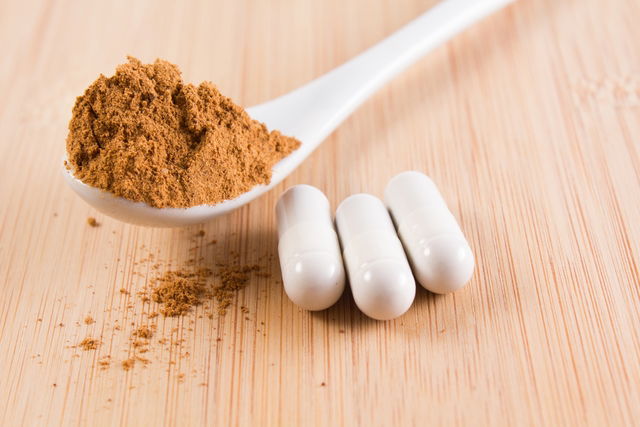Caffeine pills are a food supplement with a stimulant effect that can be used to boost alertness and performance when studying. Caffeine pills can also be indicated for athletes or for people looking to lose weight, as it promotes fat burning.
Caffeine pills are made by extracting caffeine from food to make it more concentrated. Higher levels are much more potent than consuming caffeine in its natural state. It is absorbed quickly, within minutes of consumption, and can last for up to 8 hours.
Caffeine pills are found at pharmacies and natural health stores, and should only be taken as prescribed by a doctor or registered dietitian due to its side effects. It is not recommended for children under 12 nor by patients with a history of anxiety, stress or high blood pressure.

What are caffeine pills used for?
Pills with caffeine anhydrous (which is the dehydrated form of caffeine) act directly on the brain to block the effects of adenosine, which is a substance that triggers fatigue and sleepiness. It increases the release of neurotransmitters like adrenaline, dopamine, glutamate and serotonin, which have a stimulating effect.
Caffeine pills can be taken for:
- Improving attention and concentrating
- Improving memories and learning ability
- Increase muscular strength and resistance
- Improving physical performance
- Decreasing fatigue and drowsiness
- Improving mood
- Reducing depression
- Stimulating mood and wellbeing
- Improving cognitive thinking and the speed at which information is processed
- Improving respiration
- Reducing pain perception
In addition, caffeine pills can also be used to help with weight loss. These contain a thermogenic effect which boosts metabolism and promotes fat burning. To achieve this benefit, it is important to exercise regularly and maintain a healthy diet with fruit, vegetables, whole grain and lean protein.
How to take
Caffeine pill dosing and treatment duration depends on each person’s sensitivity to caffeine, health status and health goals. The daily recommended dose is 400 mg per day, which can be taken as one 400 mg capsule, or two 200 mg capsules.
Caffeine pills should be taken with a cup of water after breakfast or lunch to avoid stomach irritation. You should avoid taking these pills at night, as they can reduce sleep quality.
For athletes, caffeine pills should be taken 60 minutes before physical activity to improve performance and strength.
It is important to highlight that caffeine capsules should only be used if recommended by a doctor or registered dietitian, as they contain side effects.
Side effects
Side effects of caffeine pills can emerge due to excessive brain stimulation. Some side effects include irritability, agitation, insomnia, dizziness, tremors, and rapid heart rate. It can also have an irritating effect on the stomach and intestines, and can cause pain, nausea, vomiting and diarrhea.
Ingesting 1.2 g of caffeine in a single dose can cause seizures, vomiting, increased heart rate, difficulty breathing, tremors and even death in some cases.
Consuming caffeine for prolonged periods may lead to a caffeine tolerance, meaning the dosing needs to be increased over time to obtain the same effect. Gradual increases in dosing can lead to anxiety, nervousness, insomnia or a rapid heart rate.
Caffeine pills can also lead to a dependency in some people in people who consume them every day. This can lead to withdrawal symptoms like headache, fatigue and irritability, which can last for 2 days to 1 week to resolve.
Contraindications for use
Caffeine pills are not indicated for children under 12, people with a caffeine allergy, or patients with a history of high blood pressure, stomach ulcers, or heart disease.
People with insomnia, anxiety, migraines, ringing ears or labyrinthitis should avoid using caffeine pills, as they can worsen symptoms.
People who use other medications should speak to their doctor before taking caffeine pills or consuming foods with caffeine, as some medications can interact with this substance and increase or reduce its effect.
Other sources of caffeine
Caffeine can be found in many forms, such as in coffee, energy drinks or concentrated powder. To consume 400 mg of caffeine per day, you should drink four 200 mL cups of fresh coffee per day.
Caffeine can also be found in teas, like green tea and black tea, as well as cacao and cola sodas.
